
Previously the staff writer for physical sciences at Science News, Maria Temming is the assistant managing editor at Science News Explores. She has undergraduate degrees in physics and English from Elon University and a master's degree in science writing from MIT. She has written for Scientific American, Sky & Telescope and NOVA Next. She’s also a former Science News intern.

Trustworthy journalism comes at a price.
Scientists and journalists share a core belief in questioning, observing and verifying to reach the truth. Science News reports on crucial research and discovery across science disciplines. We need your financial support to make it happen – every contribution makes a difference.
All Stories by Maria Temming
-
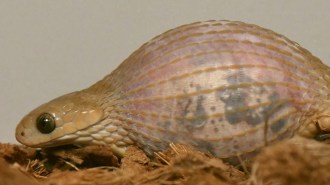 Animals
AnimalsA little snake’s big gulp may put all other snakes to shame
The humble Gans’ egg-eater can wrap its mouth around bigger prey than any other snake of its size.
-
 Neuroscience
NeuroscienceHere’s what lucid dreamers might tell us about our sleeping minds
Lucid dreaming could prove to be a powerful tool for probing dreams, one of the most universal yet elusive human experiences.
-
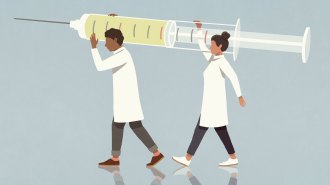 Health & Medicine
Health & Medicine50 years ago, enzyme injections showed promise for treating a rare disease
Enzyme replacement can offer relief to people with rare diseases. Now, scientists have found a way to treat one disease before a person is even born.
-
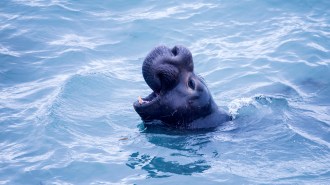 Animals
AnimalsNorthern elephant seals sleep just two hours a day at sea
The marine mammals have truly awesome stamina for staying awake, sleeping only minutes at a time on months-long trips at sea.
-
 Planetary Science
Planetary ScienceVenus has almost 50 times as many volcanoes as previously thought
Where are there NOT volcanoes on Venus? A new map of the planet unveils a veritable volcanic bonanza.
-
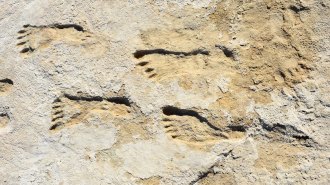 Humans
Humans50 years ago, scientists debated when humans first set foot in North America
In 1973, archaeologists debated when people first arrived in the Americas. Mounting evidence suggests its much earlier than they thought.
-
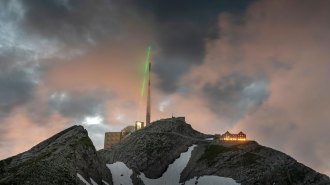 Physics
PhysicsA powerful laser can redirect lightning strikes
In a mountaintop experiment, a laser beamed into the sky created a virtual lightning rod that snagged several bolts before they hit the ground.
-
 Archaeology
Archaeology50 years ago, Stonehenge’s purpose mystified scientists. It still does
In 1972, scientists thought Stonehenge may have been a calendar. Today, we still don’t know its purpose, but we have gained insight on its origin.
-
 Animals
AnimalsBizarre aye-aye primates take nose picking to the extreme
A nose-picking aye-aye’s spindly middle finger probably reaches all the way to the back of the throat, CT scans suggest.
-
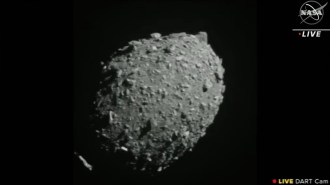 Planetary Science
Planetary ScienceNASA’s DART spacecraft just smashed into an asteroid — on purpose
If the first-ever attempt to knock a space rock off course works, it could provide a blueprint to protect Earth from a killer asteroid.
-
 Particle Physics
Particle Physics50 years ago, physicists got a whiff of what glues together protons
In 1972, particle smashups hinted at the gluon, which we now know not only holds together the innards of the proton, but also makes up more than a third of its mass.
-
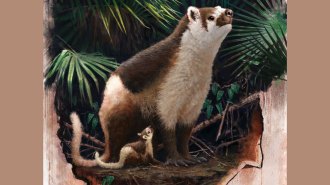 Paleontology
PaleontologyLiving fast may have helped mammals like ‘ManBearPig’ dominate
Staying in the womb for a while but being born ready to rock may have helped post-dinosaur mammals take over the planet.